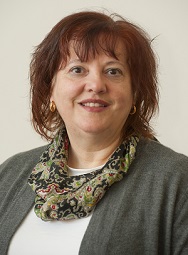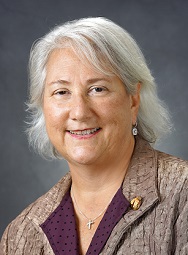by

Martha S. Matthews, MD
Martha S. Matthews, MD, Chair of the Graduate Medical Education Committee at Cooper University Health Care, and Professor of Surgery at Cooper Medical School of Rowan University.

Antoinette Spevetz, MD
Antoinette Spevetz, MD, Designated Institute Official of Graduate Medical Education, Cooper University Health Care, and Professor of Medicine, Cooper Medical School of Rowan University
On Friday, February 26, 2021, Cooper will celebrate Thank a Resident Day.
In the United States, we often take for granted that there will be a doctor available to care for us when we are sick or injured. However, many people are unaware of the long training that is required to ensure that we have trained physicians when we need them.
A graduate of a medical school is a doctor, but he or she is by no means ready to actually be a doctor. In medical school, students learn the basic facts such as anatomy, physiology of the body, how drugs work, and much more. To become licensed, all medical school graduates complete a minimum of one year of on-the-job training. The vast majority of doctors complete at least three years of training to become primary care physicians, and some complete up to 10 years of training depending on their chosen specialty. The period of training after medical school is a residency, and the training for additional specialization after residency is called a fellowship. While in residency, doctors learn how to apply the knowledge they’ve gained in medical school and how to perform procedures that are specific to their specialty.
Residents and fellows are in the unique position of being both students and workers. They are paid for their jobs, but are also expected to study, attend lectures, and perform scholarly research. While the average medical student graduates with over $200,000 of debt, residents and fellows in the Philadelphia area earn an average of about $65,000 per year and work between 60 to 80 hours per week. It is a tough job.
Residents are essential in providing medical care in our hospital systems, particularly in underserved areas. While the COVID-19 pandemic has stretched our medical system to near breaking point, residents across the country have been working tirelessly on the front lines, often forgoing some of their own specialty training to help care for patients in this unprecedented emergency.
Here at Cooper University Health Care, all of our residents and fellows are assisting with the surge of COVID-19 patients, even when it is not something that is required by their specialty training. Many of our medical fellows have already achieved board certification in Internal Medicine, and are fully competent to provide general medical care. They are giving our critical care doctors desperately needed breaks and caring for some of our sickest patients. Our internal medicine residents are forgoing elective rotations and time off to spend additional time taking care of COVID patients. Our dermatologic surgery fellow is volunteering to administer vaccines. Our residents in pediatrics and psychiatry are making phone calls to families to keep them up to date about their loved ones who are too sick to talk to them. Residents in specialties of surgery, radiology, orthopaedics, and many other fields are assisting in the ICUs. One of our obstetrical residents set up a fundraising page to help a family after her patient – their mom – died from COVID. Cooper’s emergency medicine residents are working extra shifts to make sure that the people of Camden get the emergency care they need. All of our residents and fellows are putting aside their own interests to fulfill their Hippocratic Oath to help patients.
Doctors in training across the country who work hard on a normal day have stepped up to the challenge during the pandemic, going well beyond their own self-interest, risking their own health, and sacrificing personal time to ensure that our citizens get the medical care that we have come to take for granted. At Cooper, we are very proud of our 377 trainees and are grateful for their professionalism and hard work. We also salute the residents and fellows across the region and the country for a job well done.
If you or a loved one has had care at a teaching hospital, you have benefitted from residents and fellows in medical training. If you or a loved one has been treated by a doctor, you have benefitted from the expertise of residents and fellows. In a survey done by the Accreditation Council for Graduate Medical Education (the accreditation body who oversees resident training) doctors were asked what they wanted most. It was not a raise or vacation, it was to feel appreciated. Write a note, send an email, or give a call to your hospital’s patient relations department to express your thanks. If you interact with a resident, thank them for their efforts. They will appreciate it more than you can imagine.
